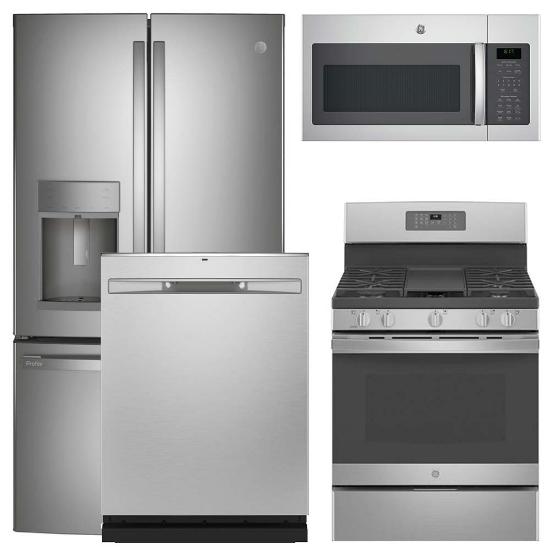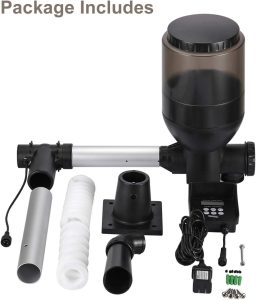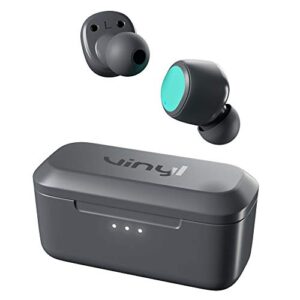Contents
Imagine a world where understanding the intricacies of household appliances is as easy as reciting the alphabet. Introducing “The ABCs of Appliances,” a revolutionary product that simplifies the complex world of appliances by providing an easy-to-understand abbreviation for every type of device. Gone are the days of confusion and frustration when it comes to appliances – with “The ABCs of Appliances,” you’ll be empowered with the knowledge you need to become a savvy homeowner, effortlessly navigating through the vast array of appliances that fill our homes.
Common Appliances
Refrigerators
Refrigerators are an essential appliance in any home or workplace. They are used to keep food and beverages cool, ensuring their freshness and extending their shelf life. Refrigerators come in different shapes and sizes, with various features such as ice makers, water dispensers, and temperature control settings. It is important to choose a refrigerator that meets your needs in terms of capacity, style, and energy efficiency.
Washing Machines
Washing machines are a godsend for anyone who wants to lighten their laundry load. These appliances are designed to clean clothes efficiently and effectively. There are different types of washing machines available, such as top-loading and front-loading models, each with its own set of advantages. When shopping for a washing machine, consider factors such as capacity, water and energy efficiency, and features like different washing cycles and settings.
Dishwashers
Dishwashers are a convenient addition to any kitchen, saving you time and effort in washing dishes by hand. These appliances use water and detergent to clean and sanitize your dirty dishes, pots, and pans. When choosing a dishwasher, consider factors such as capacity, energy efficiency, noise level, and the layout of the dishwasher racks and compartments.
Ovens
Ovens are a crucial component of any kitchen, allowing you to bake, roast, and broil a wide range of delicious meals. There are different types of ovens available, including traditional gas or electric ovens and modern convection ovens. When selecting an oven, consider factors such as cooking capacity, energy efficiency, temperature control, and additional features like self-cleaning and advanced cooking modes.
Microwaves
Microwaves are a time-saving and versatile appliance that can heat, defrost, and cook a variety of foods. These appliances use electromagnetic waves to generate heat, making them a quick and efficient option for everyday cooking and reheating. When choosing a microwave, consider factors such as size, wattage, cooking presets, and additional functions like convection or grill modes.
Energy Efficiency
Understanding Energy Efficiency
Energy efficiency refers to the amount of energy an appliance consumes in relation to its performance. Energy-efficient appliances are designed to use less energy while still providing the same level of functionality. Understanding energy efficiency ratings and labels can help you make informed decisions when purchasing appliances.
Energy Star Rating
The Energy Star rating is a certification program that identifies appliances that meet specific energy efficiency guidelines set by the U.S. Environmental Protection Agency. Appliances with the Energy Star label have been tested and proven to be more energy-efficient than standard models, resulting in significant cost and energy savings over time.
Energy-Saving Tips
Apart from choosing energy-efficient appliances, there are many other ways to reduce your energy consumption and lower your utility bills. Some energy-saving tips include using appliances during off-peak hours, maintaining proper cleaning and maintenance schedules, adjusting thermostat settings, and utilizing natural light and ventilation whenever possible. Small changes in your daily habits can make a big difference in energy consumption.

Types of Appliances
Major Appliances
Major appliances are the larger, more significant appliances found in homes and workplaces. These include refrigerators, washing machines, dishwashers, ovens, and other appliances that are typically built into the structure of a kitchen or laundry room. Major appliances are meant to be durable and long-lasting, serving essential functions in daily life.
Small Appliances
Small appliances are the compact and portable appliances that are used for specific tasks in the kitchen or around the house. These include appliances like blenders, toasters, coffee makers, and vacuum cleaners. Small appliances are often used on a daily basis and are designed to be convenient and user-friendly.
Kitchen Appliances
Kitchen appliances encompass a wide range of appliances used in the kitchen for cooking, food preparation, and cleaning. This category includes refrigerators, ovens, dishwashers, microwaves, blenders, and other appliances typically found in a kitchen setting. Kitchen appliances come in various sizes and styles to suit different lifestyles and culinary needs.
Consumer Electronics
Consumer electronics refer to appliances that are primarily used for entertainment, communication, and information purposes. These appliances include televisions, computers, smartphones, and audio systems. Consumer electronics have become an integral part of modern life, providing connectivity, entertainment, and productivity in everyday activities.
Kitchen Appliances
Refrigerators
Refrigerators are a vital part of any kitchen, keeping food fresh and preserving perishable items. When choosing a refrigerator, consider factors such as size, configuration (e.g., side-by-side, French door, top or bottom freezer), and features like ice makers, water dispensers, and temperature control options. It is also important to consider energy efficiency ratings and the layout of the refrigerator compartments to ensure optimal storage and organization.
Ovens and Stoves
Ovens and stoves are essential for cooking and baking in the kitchen. There are various types of ovens available, including conventional, convection, and combination ovens. Stoves come in gas, electric, and induction options, each with its own benefits and considerations. When selecting an oven and stove, look for features such as cooking capacity, self-cleaning functions, and precise temperature control.
Dishwashers
Dishwashers are a convenient and time-saving appliance that automates the process of cleaning dishes. Consider factors such as capacity, noise level, energy efficiency, and the layout and adjustability of dishwasher racks when choosing a dishwasher. Modern dishwashers offer features like adjustable wash cycles, specialized cleaning modes, and sensors that adapt the washing process based on load and soil levels.
Microwaves
Microwaves are a versatile appliance in the kitchen, used for cooking, reheating, and defrosting food quickly. When selecting a microwave, consider factors such as size, wattage, cooking presets, and additional features like convection or grill modes. Microwaves with sensor cooking technology can be helpful in ensuring the optimal cooking time for different types of food.
Blenders
Blenders are handy appliances for preparing smoothies, soups, sauces, and other blended creations in the kitchen. When choosing a blender, consider factors such as power, speed settings, blending capacity, and the durability and quality of the blades. Some blenders also offer additional features like pulse settings, pre-programmed blending modes, and removable blending cups for on-the-go convenience.

Consumer Electronics
Televisions
Televisions are a popular form of entertainment in households worldwide. When purchasing a television, consider factors such as screen size, resolution (e.g., HD, 4K), display type (LED, OLED), smart capabilities, and connectivity options. It is also important to consider the viewing distance and the room’s lighting conditions to ensure an optimal viewing experience.
Computers
Computers are essential devices for work, communication, and entertainment purposes. When choosing a computer, consider factors such as the operating system (Windows, macOS, Linux), processor speed, memory (RAM), storage capacity, display size, and connectivity options. Whether you need a desktop computer or a laptop, make sure it meets your specific requirements and suits your lifestyle.
Smartphones
Smartphones have become an integral part of modern life, offering communication, internet browsing, multimedia capabilities, and various applications. Consider factors such as the operating system (iOS, Android), screen size, camera quality, storage capacity, battery life, and connectivity options when selecting a smartphone. It is also important to consider your usage patterns and budget when making a decision.
Audio Systems
Audio systems enhance the listening experience for music, movies, and other forms of entertainment. When choosing an audio system, consider factors such as sound quality, connectivity options (Bluetooth, Wi-Fi), compatibility with different devices, and the size and design of the speakers. Additional features like surround sound, equalizers, and multi-room audio capabilities can enhance your audio experience further.
Maintenance and Safety
Cleaning and Care
Proper cleaning and care are essential to maintain the performance and longevity of your appliances. Follow manufacturer guidelines for cleaning and maintenance tasks specific to each appliance, such as removing and cleaning refrigerator coils, descaling coffee makers, and cleaning dishwasher filters. Regular cleaning not only ensures optimal functionality but also promotes a hygienic and safe environment.
Preventing Appliance Fires
Appliance fires can be a serious safety hazard, so it is important to take preventive measures. Avoid overloading electrical circuits, unplug appliances when not in use, and regularly inspect cords and plugs for any signs of damage. Keep flammable materials away from heat sources and ensure proper ventilation for appliances that generate heat, such as ovens and dryers.
Handling Electrical Issues
Electrical issues can pose risks to both your appliances and personal safety. If you encounter electrical problems, such as flickering lights, frequent circuit breakers tripping, or unusual sounds or smells, it is important to address them promptly. Consider consulting a professional electrician to inspect and resolve any electrical issues to ensure the safety of your appliances and your home.
Childproofing Appliances
If you have young children at home, it is important to take steps to childproof your appliances. Secure heavy and potentially dangerous appliances like ovens, refrigerators, and washing machines to prevent tipping. Use childproof locks and knob covers for appliances with adjustable settings. Store cleaning products, detergents, and other hazardous substances out of reach and in child-resistant containers.

Appliance Shopping
Budgeting
Before purchasing new appliances, it is essential to establish a budget to guide your selection process. Consider how much you are willing to spend and prioritize which appliances are most important to you. Be mindful of any ongoing costs, such as energy consumption and maintenance, as these can impact your budget in the long run.
Researching Options
Researching different appliance options is an important step in making an informed purchase. Read product reviews, compare features and specifications, and consider the brands and models that align with your requirements and preferences. Look for appliances that have good warranties and a proven track record of reliability and customer satisfaction.
Comparing Brands
Different brands offer various levels of quality, reliability, and customer service. Take the time to compare different brands and look for reputable manufacturers that have a history of producing high-quality appliances. Consider factors such as warranties, after-sales support, and customer reviews to determine which brands offer the best value for your investment.
Warranty Considerations
When purchasing appliances, it is important to understand the warranty coverage offered by the manufacturer. Carefully review the warranty terms and conditions, including the duration of coverage, what is included and excluded, and any requirements for maintenance or professional installation. A comprehensive warranty can provide peace of mind and coverage for repairs or replacements if needed.
Appliance Installation
Pre-Installation Preparation
Before installing new appliances, make sure you have prepared the necessary space and utilities required for each appliance. Ensure sufficient electrical outlets, gas connections, or plumbing connections are available and accessible. Measure the available space to ensure the appliance fits properly and consider any additional requirements for ventilation or clearance.
Choosing the Right Location
Selecting the right location for your appliances is crucial for their optimal performance and convenience. Consider factors such as proximity to electrical and plumbing connections, ease of access for daily use, and compatibility with existing kitchen or laundry room layouts. Take into account ventilation requirements, especially for appliances that generate heat or produce steam, such as ovens and dryers.
Installation Process
Appliance installation typically involves connecting the appliance to the necessary utilities, such as electricity, gas, or water, depending on the appliance type. Follow the manufacturer’s instructions and guidelines for proper installation, or consider hiring a professional installer if you are not confident in your abilities. Improper installation can endanger safety and may void the warranty.
Testing and Troubleshooting
Once the appliances are installed, perform a thorough test to ensure they are functioning correctly. Test the various features and settings, such as temperature control, water flow, and connectivity. If any issues arise, consult the appliance manual or contact customer support for troubleshooting assistance. Addressing any problems early on can prevent further damage or inconvenience.

Troubleshooting Common Issues
Appliance Won’t Turn On
If your appliance fails to turn on, first check if it is properly connected to a power source. Ensure the power cord is securely plugged in and verify that the outlet is functioning correctly. If the problem persists, check for any tripped circuit breakers or blown fuses in your electrical panel. If you are unable to identify the issue, consult a professional technician.
Excessive Noise
Appliances may produce excessive noise for various reasons. If your appliance is making unusual or loud noises, check for any loose or misaligned parts. Inspect the appliance for any foreign objects that may be causing the noise, such as coins or utensils. For complex issues or if the noise persists, contact the manufacturer or a qualified technician for further assistance.
Leaking or Water Damage
If you notice leaks or water damage around your appliance, immediately turn off the water supply and unplug the appliance from the power source. Assess the source of the leak and inspect the hoses, valves, or seals for any signs of damage or wear. Tighten connections or replace damaged components as necessary. If the issue persists, contact a professional for repair or replacement.
Poor Performance
If your appliance is not performing as expected, first check if it is properly maintained and cleaned. Ensure that the appliance is being used according to the manufacturer’s instructions and adjust any necessary settings. If the problem persists, consult the user manual for troubleshooting tips or contact customer support for further assistance. Regular maintenance can help prevent performance issues.
Appliance Upgrades
When to Upgrade
Knowing when to upgrade your appliances is important to ensure optimal performance, energy efficiency, and reliability. Consider factors such as the age of the appliance, repair costs, and technological advancements in newer models. If your appliance frequently requires repairs or is significantly outdated, it may be more cost-effective in the long run to upgrade to a newer and more efficient model.
Increasing Energy Efficiency
Upgrading to energy-efficient appliances can significantly reduce your energy consumption and utility bills. Look for appliances with high energy star ratings or other energy-efficient certifications. Features such as adjustable temperature settings, timed functions, and smart technology can help optimize energy efficiency. Consider upgrading appliances that consume the most energy, such as refrigerators and air conditioners.
Smart Home Integration
Smart home integration allows you to control and monitor your appliances remotely using a smartphone or voice commands. Upgrading to smart appliances can enhance convenience, energy efficiency, and connectivity in your home. Consider appliances that are compatible with popular smart home platforms or ones that offer their own dedicated apps for seamless integration and control.
Appliance Maintenance Contracts
Appliance maintenance contracts or extended warranties can provide peace of mind and coverage for repair and maintenance services beyond the standard warranty period. These contracts typically offer annual or bi-annual maintenance visits to ensure the optimal performance and longevity of your appliances. Consider the cost and coverage provided by maintenance contracts when purchasing new appliances or when your existing warranty expires.
In conclusion, understanding the various types of appliances, their energy efficiency, maintenance and safety considerations, and the appliance shopping process is essential for making informed decisions when it comes to purchasing, installing, and maintaining appliances. By considering factors such as budget, performance requirements, and energy efficiency, you can choose appliances that meet your specific needs while enhancing convenience and reducing environmental impact. Regular cleaning, maintenance, and troubleshooting can help extend the lifespan of your appliances, while timely upgrades and integration of smart technology can enhance efficiency and connectivity in your home.











